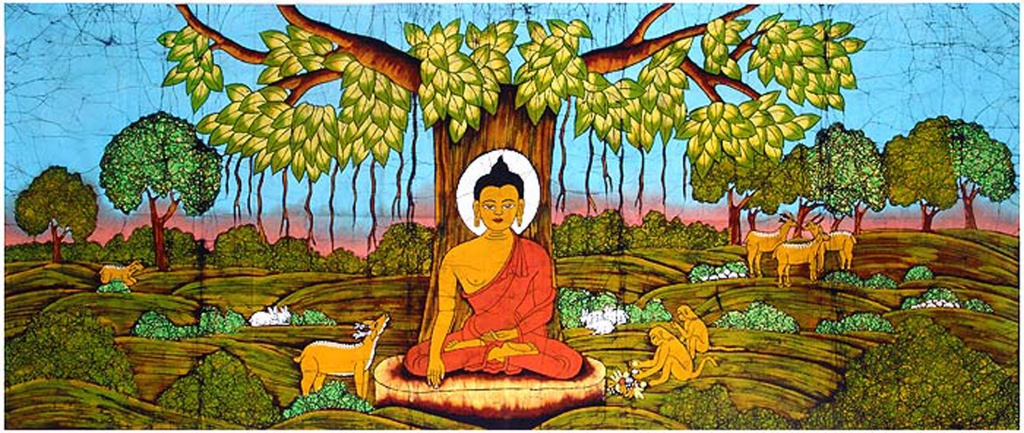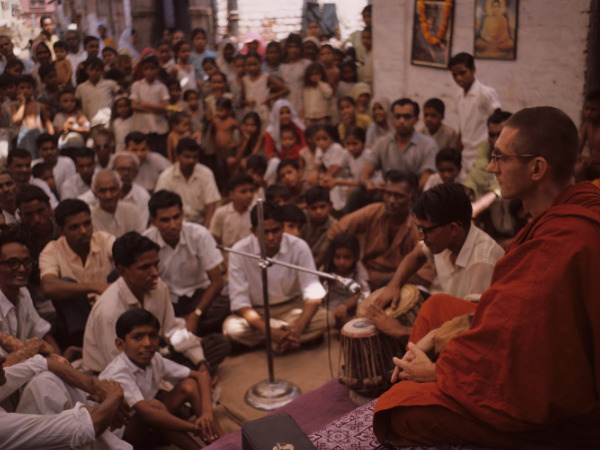Ecological & Social Issues: a Dharmic response
There are differing opinions of course – here’s some…
Introduction
One could suggest a spectrum on which all Buddhist practitioners will sit, albeit in quite a fluid way: at one end of the spectrum are the engaged activists whose focus is on trying to effect change in the world, whether it’s the actions of governments and large corporations, or raising awareness amongst the general population, etc; at the other end of the spectrum is the archetypal ‘cave-dwelling’ renunciate whose focus is on spiritual awakening, and perhaps sometimes helping others to do the same.
Both are revolutionaries in very different ways, and many of us are attempting to do justice to both ‘calls’, some kind of ‘balance’ of both either in our working week, as it were, or through the rhythm of alternating periods of engagement with periods on retreat.
The International Council recently had a conference exploring Dharmic principles underlying engagement with social and ecological issues. The result were 15 points of guidance for the individual and Triratna institutions (like Centres) – we’ll share that once the consulation process is done.

Ecological/climate crisis
Some of the effects of industrialisation and population growth have been extremely harmful for our eco-system, whether we consider loss of natural habitat, huge numbers of species becoming extinct or threatened, or climate change.
What can we do? A dedicated website has been set up as a focus for Triratna’s engagement on this.

Buddhist Action Month (BAM!)
This is an initiative from the NBO (Network of Buddhist Organisations) where June becomes a special focus for our efforts.
Although in principle BAM is not limited to environmental issues, it’s fair to say that climate change has become it’s main focus.

'Pure' Dharma!
Though many Buddhists feel motivated to participate in various kinds of activism, there is also the view that Triratna should stick to its primary mission: spreading the Dharma and creating conditions ( and Sangha) to help as many people as possible to practice it.
Given the impossibility of ever ‘fixing’ samsara, our response to a suffering world is through offering the timeless teachings, practices and perspectives of the Dharma that are the only truly effective solutions. Others would argue that we don’t have the luxury of time needed for seemingly very slow, gradual change of self and world.
What do you think?

